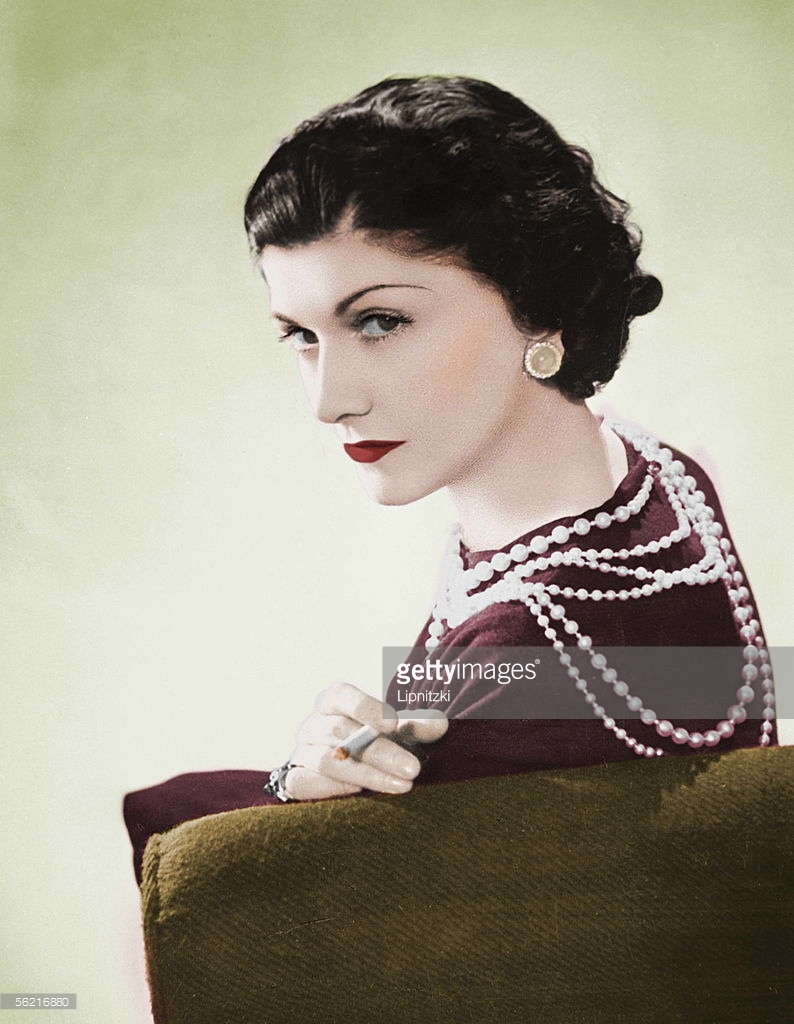Coco Chanel ruled my life for seven years. The bold French designer who revolutionized women’s fashion dictated nearly every decision I made after I graduated from NAU with a degree in merchandising. You are probably wondering, “What the heck does this have to do with teaching? Why is she blogging about pearls and quilted handbags?” First, I love fashion, and second, without my experience in luxury retail, I would not be the teacher I am today.
I started my “real” first adult job at Neiman Marcus Las Vegas in the designer handbag department as the assistant manager. I managed twenty employees and a multi-million dollar business. My employees ranged in age from 18 to 80 (truth: my 80-year-old employee turned 80 every year for seven years, but at that age, I would never reveal I noticed this phenomenon). They spoke a variety of languages and came from different cultures and countries. I learned very fast how to coach and manage each person based on their strengths, weaknesses, and needs.
After several years in management, I transitioned into sales and ran the Chanel handbag boutique. I learned very quickly what questions to ask my customers, how to anticipate their needs, and how to go the extra mile to earn customers for life. From the everyday women who splurged and purchased one piece of Chanel a year to the celebrity client who was decked out from head to toe in designer digs, I learned how to monitor, adjust and adapt to meet their needs and ultimately make the sale.
After nearly a decade of working with the world’s most coveted brands, I decided I was done with retail. Tired of the long hours, weekends and holidays, I enrolled in graduate school and became a high school English teacher. I quickly learned management and selling is quite literally the same as teaching.
As a teacher, I must manage a group of students who come from a variety of backgrounds. This shaped how I understood my employees and how I understand my students. Each student, like employees, has strengths, weaknesses, and needs. Much like my employees, it is my job to coach students to be successful in their endeavors. Instead of coaching them on selling techniques, now I coach students how to interpret and analyze texts like The Crucible by Arthur Miller.
As I plan and teach lessons, I monitor, adjust, and adapt to meet my students’ needs. It also requires asking the right questions. I needed to know about my client and their lifestyle. I asked questions like, “Are you looking an everyday handbag? Or something for a special occasion?” Now, I ask students questions to help understand them and have them articulate their thinking and learning. For example, “How does Fitzgerald use setting to create mood in The Great Gatsby?”
The most important lesson I learned from selling required me to sell what I had available to clients. If a client came in and we did not have what they were looking for, it was my job to sell what I did have on hand and ultimately, make the sale. This is so similar to teaching. My students must buy what I am selling. This requires product, or in teacher talk, content knowledge. It requires excitement about the product. I always loved telling stories about Coco Chanel while selling, and now this is an intricate and vital part of my classroom and teaching. I must romance Julius Caesar by Shakespeare for students when they get bored or frustrated by the language. I do this by making it personal and adding attention-getting and memorable analogies or acting out the scene for students. Ultimately, I have to make the sale with students by making them buy into my content and demonstrate success in the skills I am teaching.
I think there is a little inner salesperson in every teacher. We all wake up and try to make the sale. Not all of us had the opportunity to work in retail, but we all want our students to buy what we are selling. And therefore every once in awhile, I stop and thank Coco and her pearls.










Comments 7
Loved this! Thank you for sharing!
Thank you!
Thank you for this article. I appreciate your fresh perspective on the art of teaching. I, too, came into education from an alternative route after a previous career. I think this avenue provides a freshness and uniqueness that helps teaches see with a different lens. I commend you on your ability to recreate your skills in talent within the arena of education.
So much truth in this. I wonder, would someone selling high end handbags ever be expected to make 34 customers at a time feel unique, special and catered-to? Education is high-end goods requiring all the skills you mention… and more!
Leah, this is such a great story! I love hearing bout your prior experiences. So much is different in the two worlds, but you’ve really expressed the important aspect of being a salesman and catering to our clients. Well done!
What a brilliant and well-crafted analogy. I loved this article!
I always love seeing how teaching compares to other careers and you do a great job. One thing I think about is from a movie where a woman is asking a priest if he doesn’t miss you know what. The priest answered that of course he did, but when he made his decision, he figured he was changing one set of complications for another.